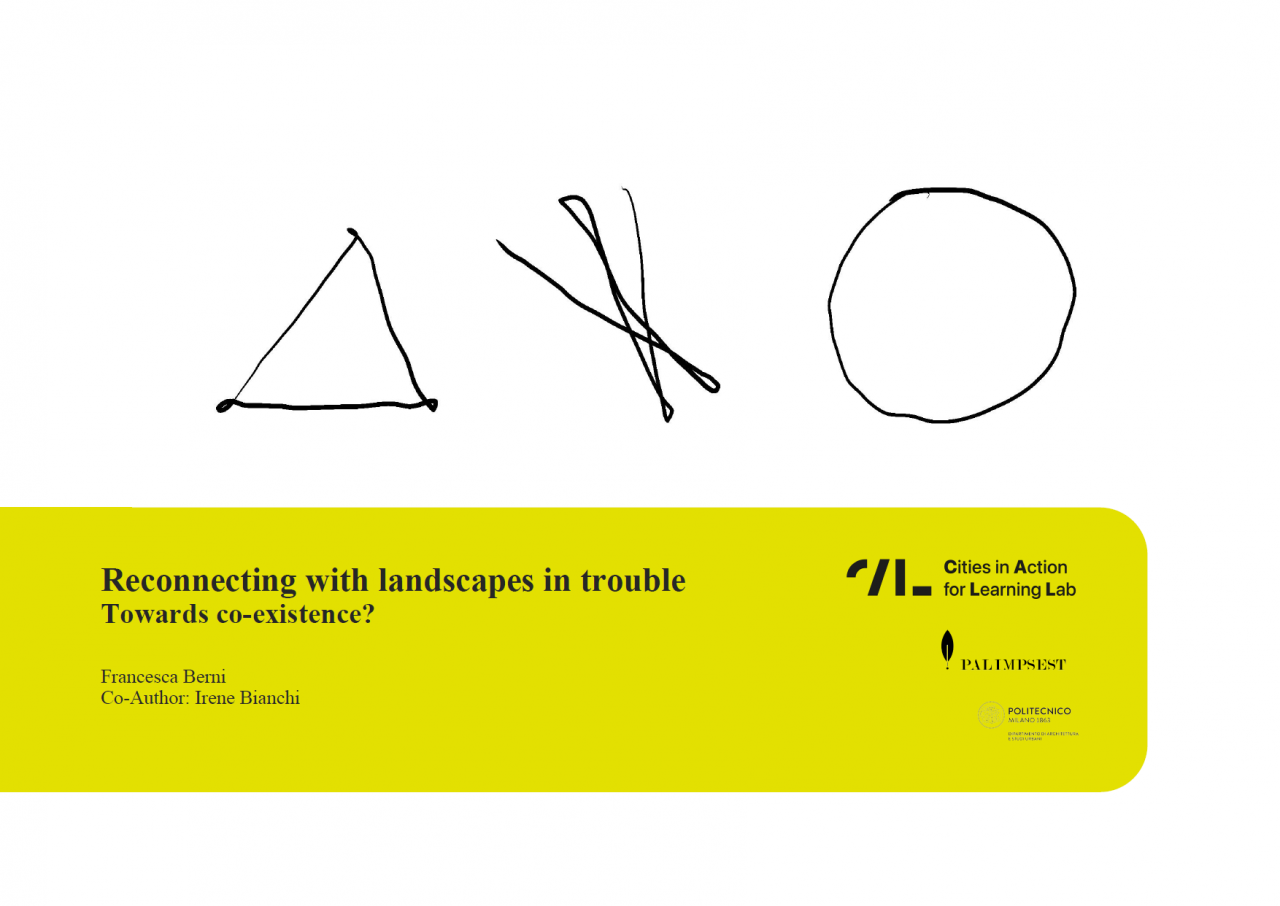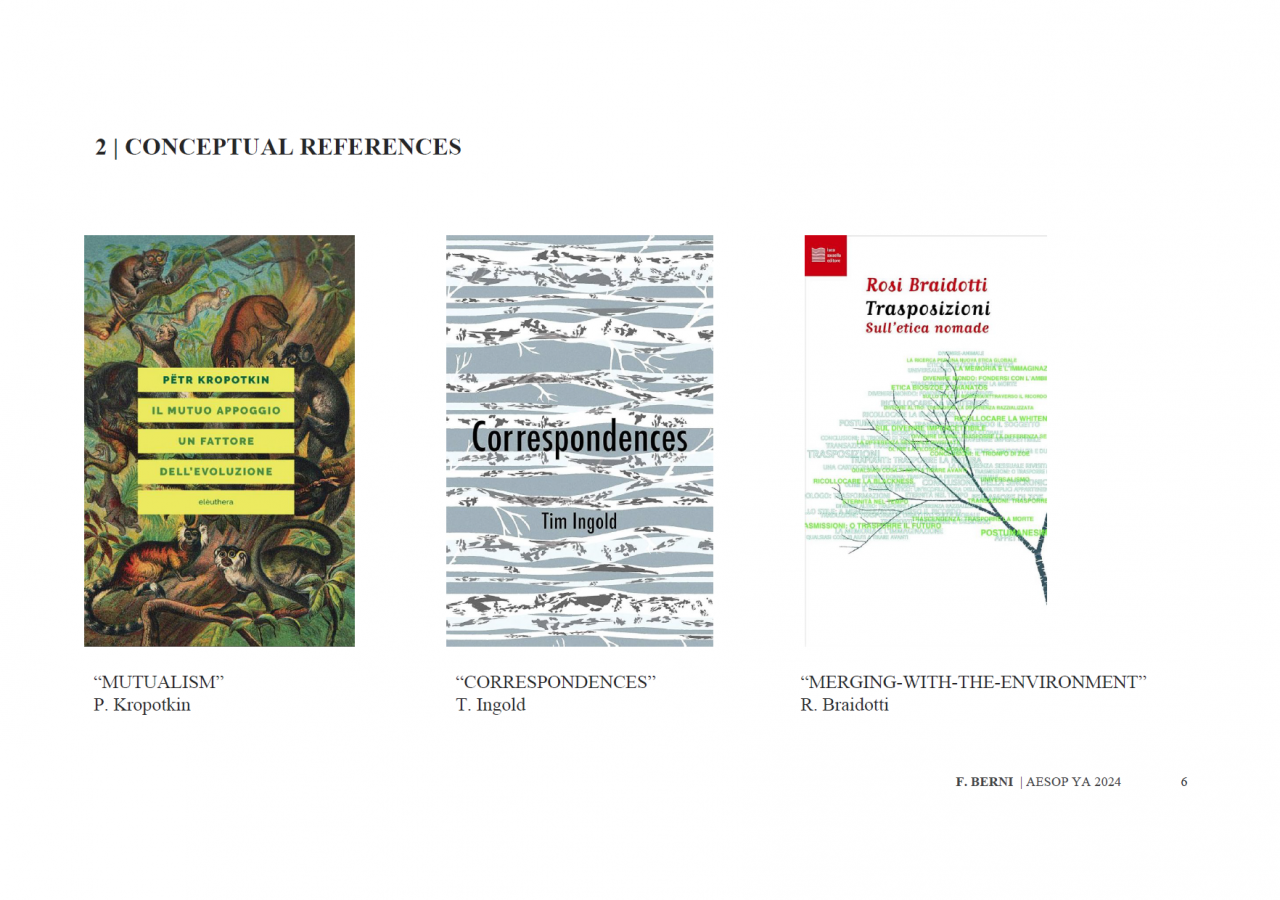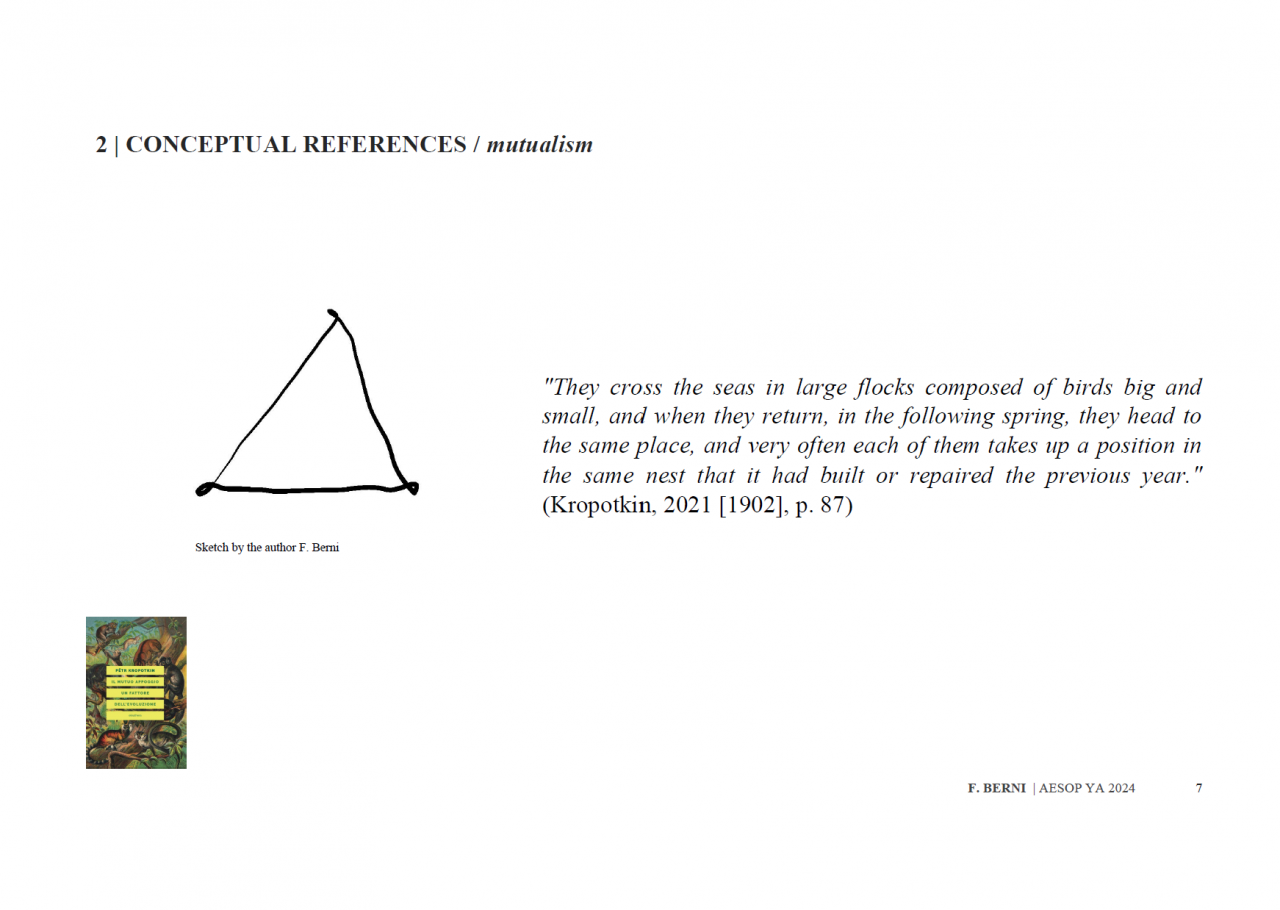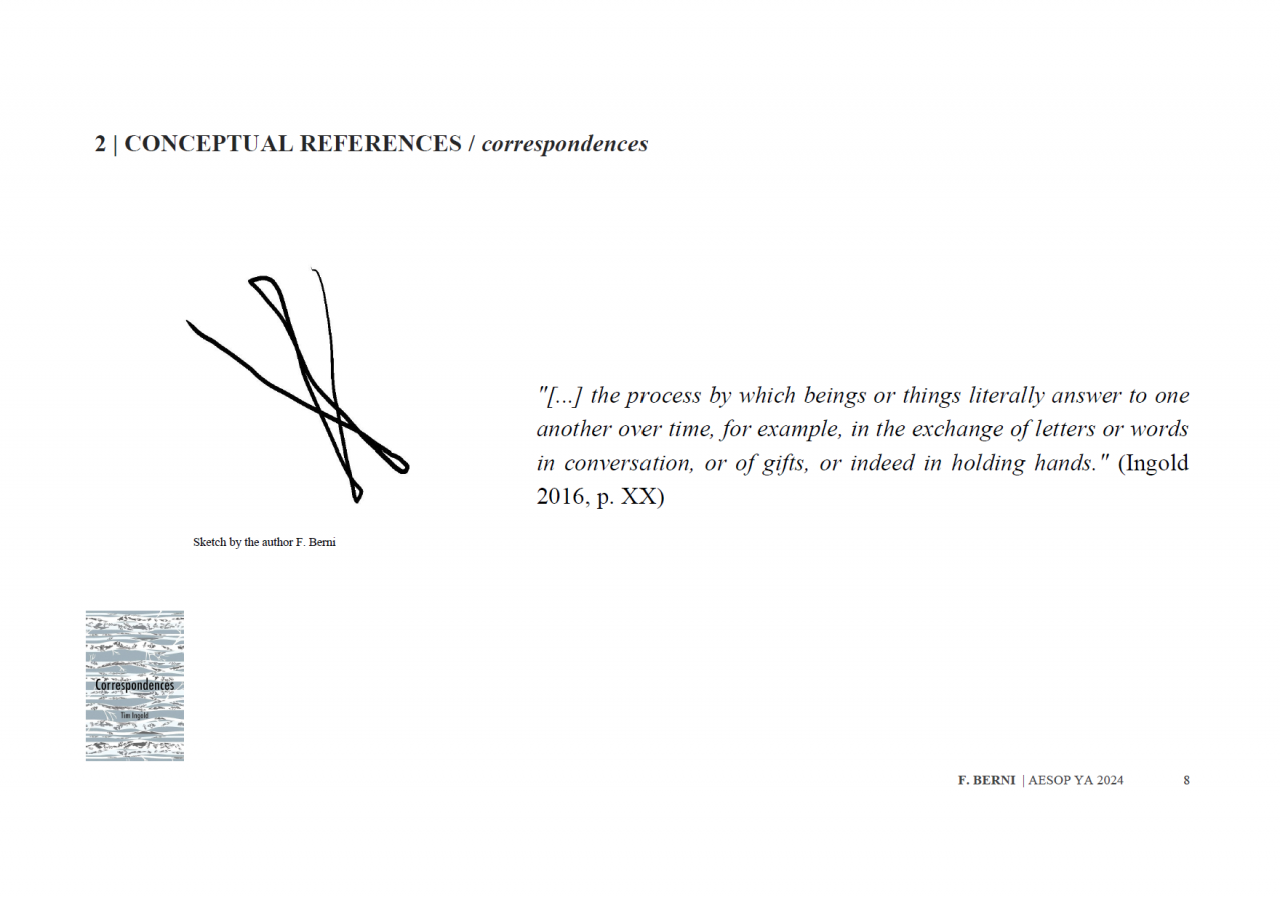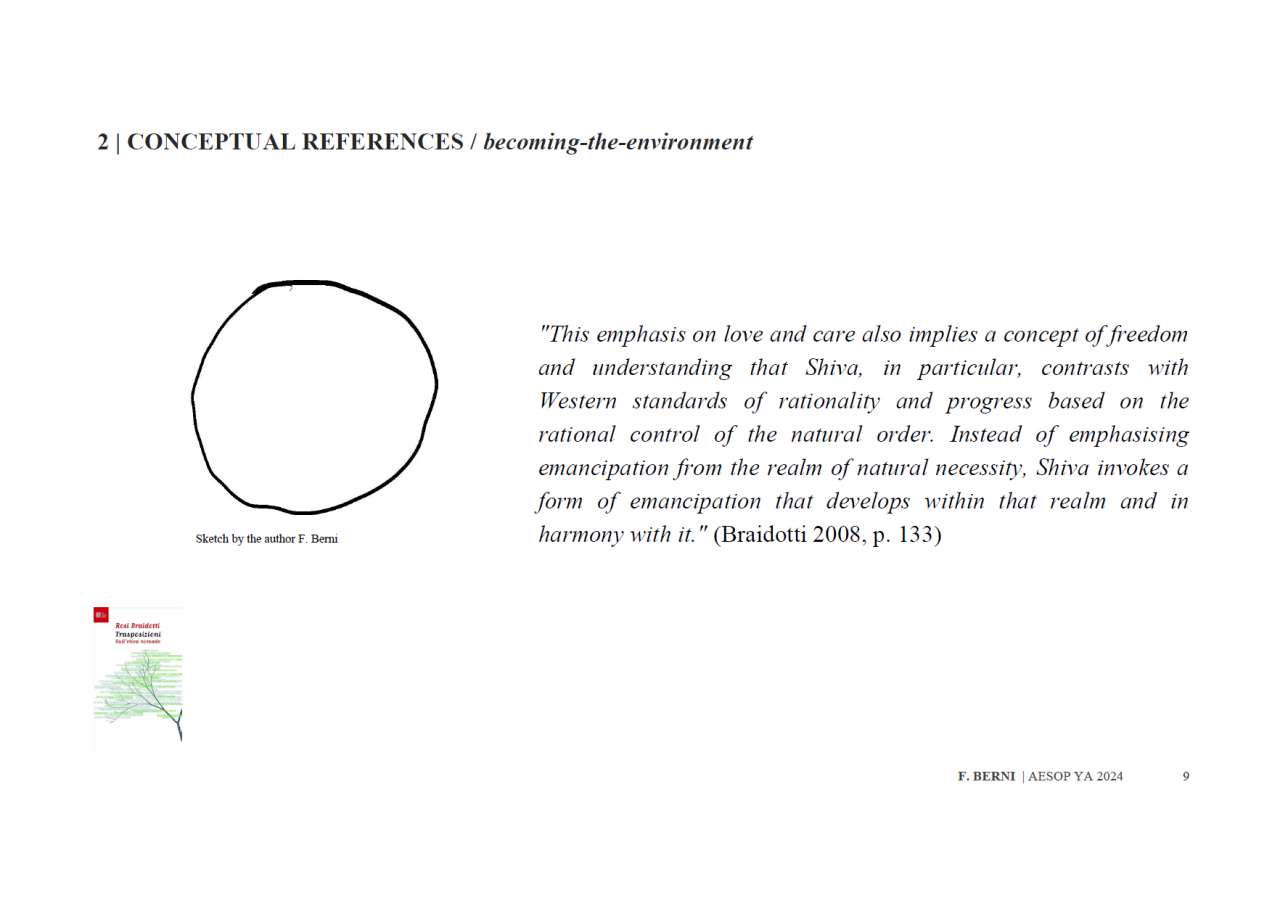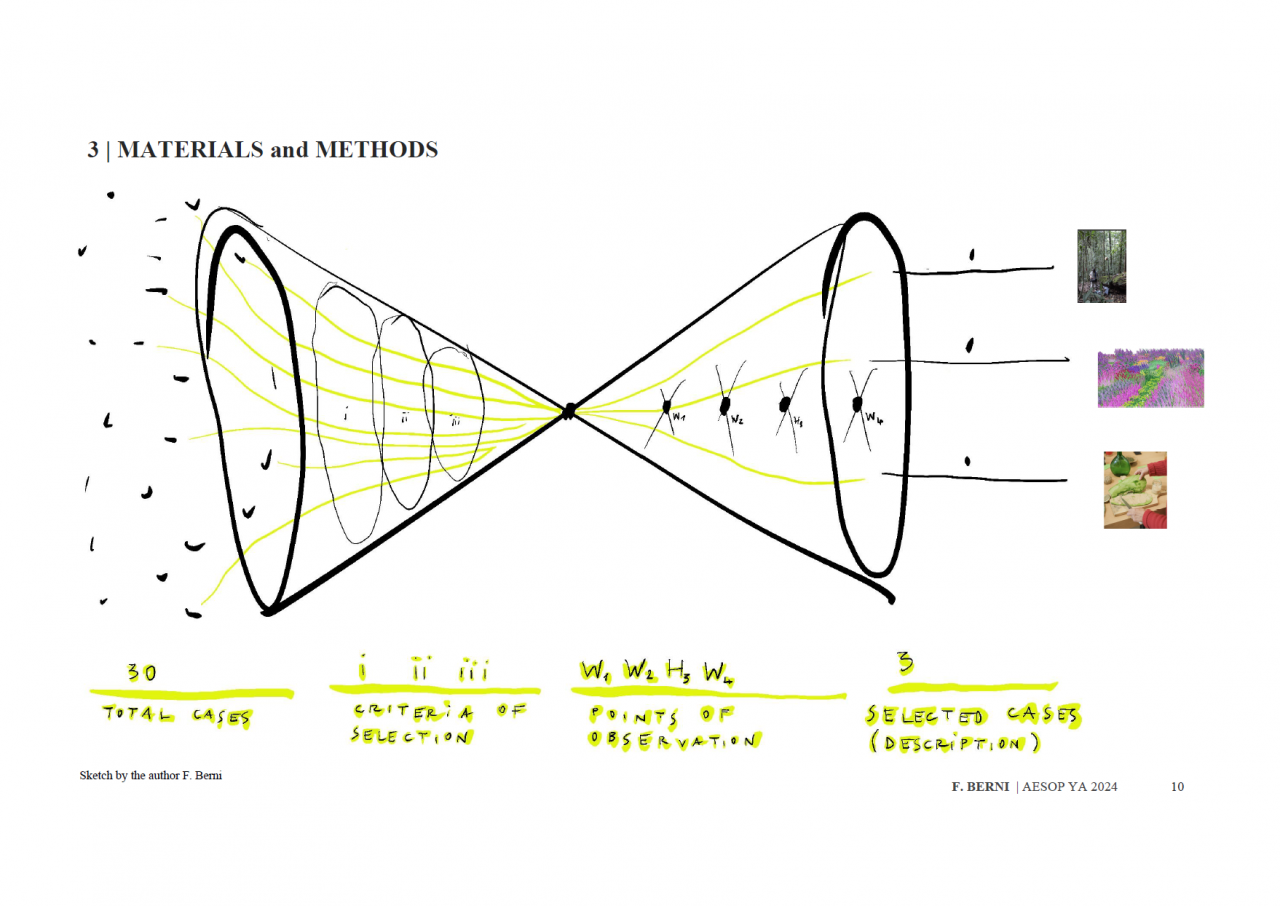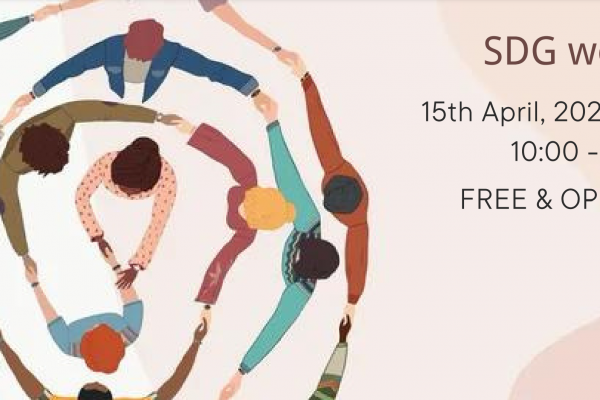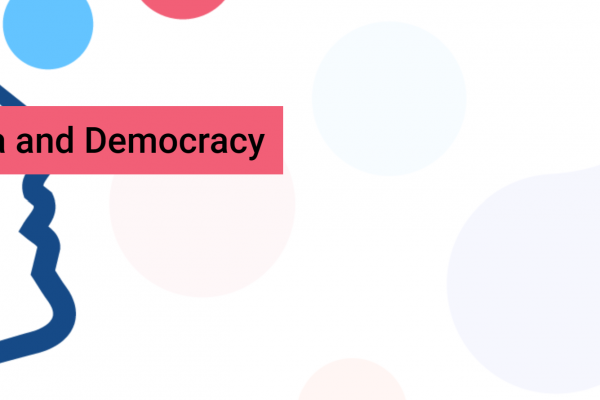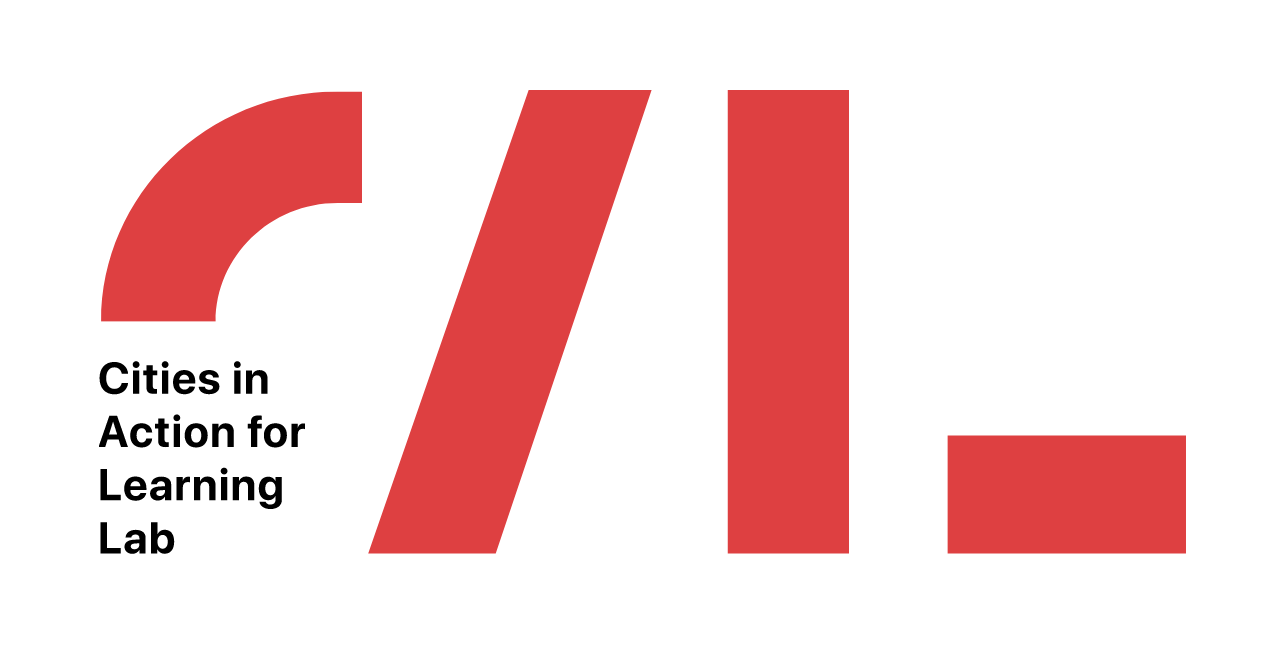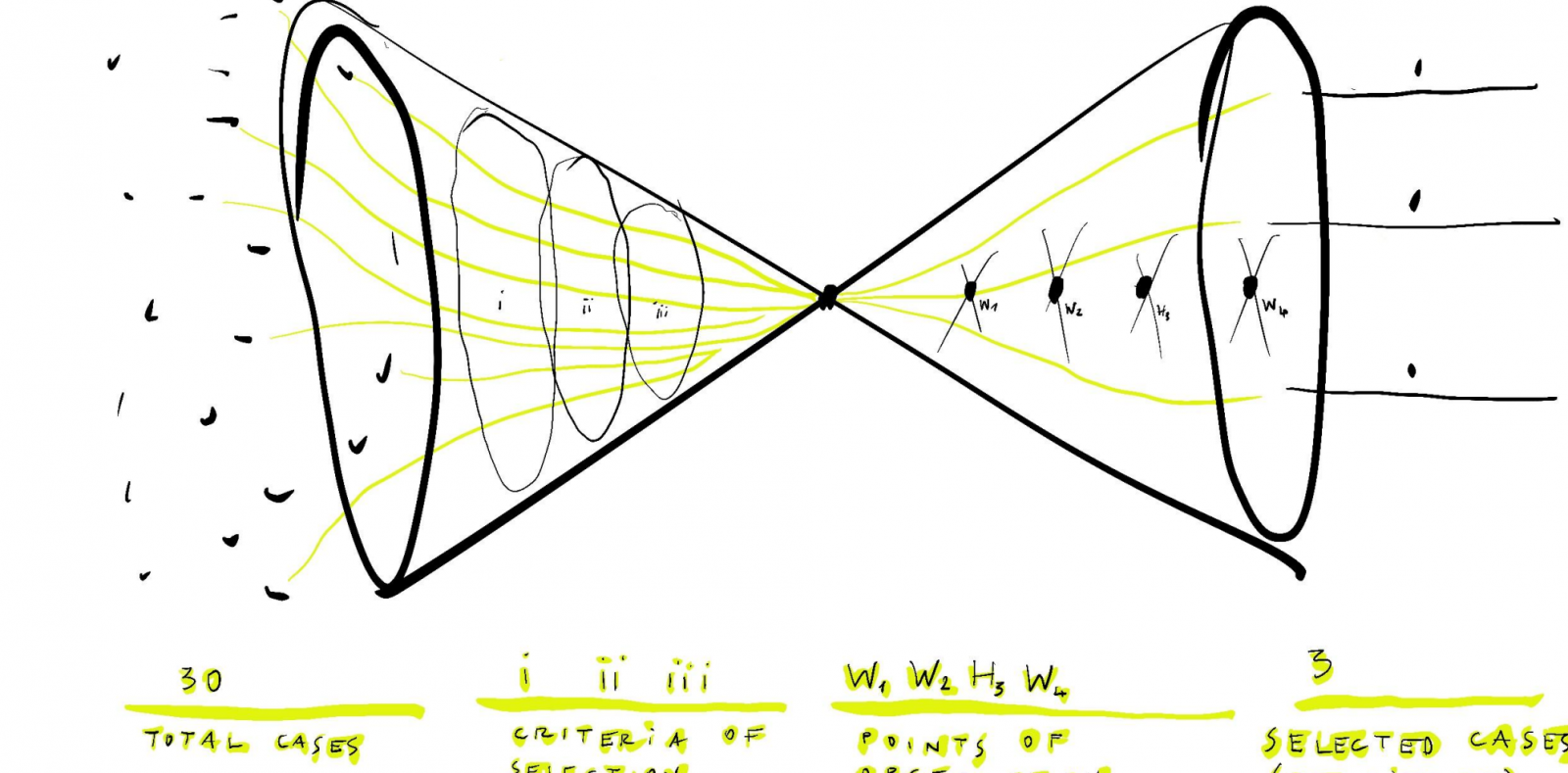
CALL at AESOP Young Academics Conference
CALL researchers participated at the AESOP Young Academic Conference 2024 “Bridging Gaps: Urban Planning for Coexistence”, held at Politecnico di Milano from March 19th to 22nd. The conference was organised and coordinated by PhD students from the Department of Architecture and Urban Studies. The event opened up interesting opportunities for discussion and interaction among young researchers. They were called upon to engage in dialogue on the various challenges related to coexistence in planning, as well as to reflect on their own academic journey.
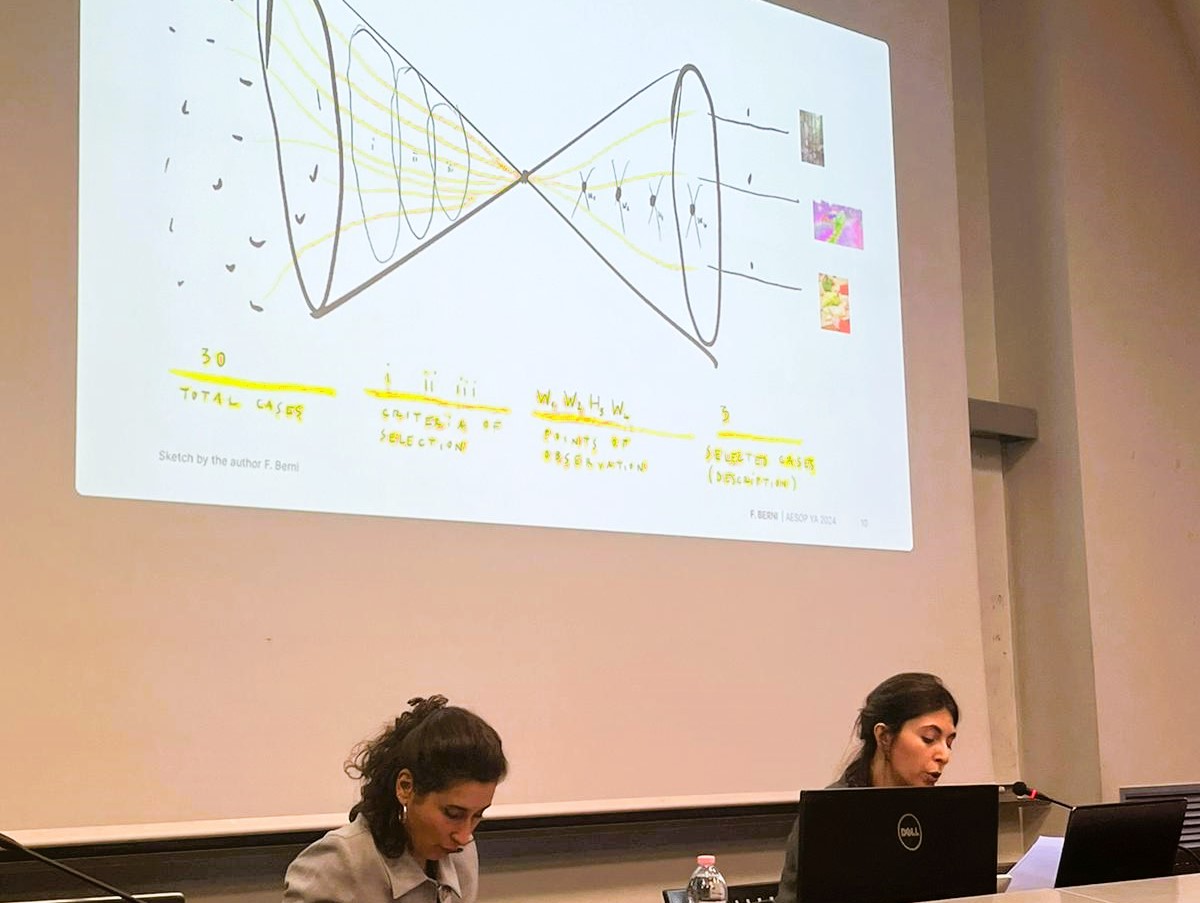
On Thursday, March 21st, Francesca Berni presented “Reconnecting with landscapes in trouble: Towards co-existence?”, a short reflection – developed with Irene Bianchi – which delves into the intricate relationship between landscape transformation and co-agency dynamics. The observation, inspired by PALIMPSEST Project research questions, was conducted through three conceptual lenses seeking to reframe human-nature interactions in collaborative terms and was illustrated with the support of three projects working at the art-science interface.
On the second day of the conference, Wednesday 20th March, Mayam Karimi participated as a discussant along with Chiara Nifosi from DAStU Polimi in the roundtable discussion titled “Beyond the Urban-Rural Divide” chaired by Eugenio Morello from DAStU Polimi, Gilles Desthieux from the Geneva University of Landscape, Engineering, and Architecture, Luca Lazzarini from DAStU Polimi and Nitin Bathla from the ETH Zürich. Reflecting on their work and research, Mayam addressed some of the theoretical and practical challenges related to inclusive transition, accessibility to services, and marginalization that emerged during the discussion.
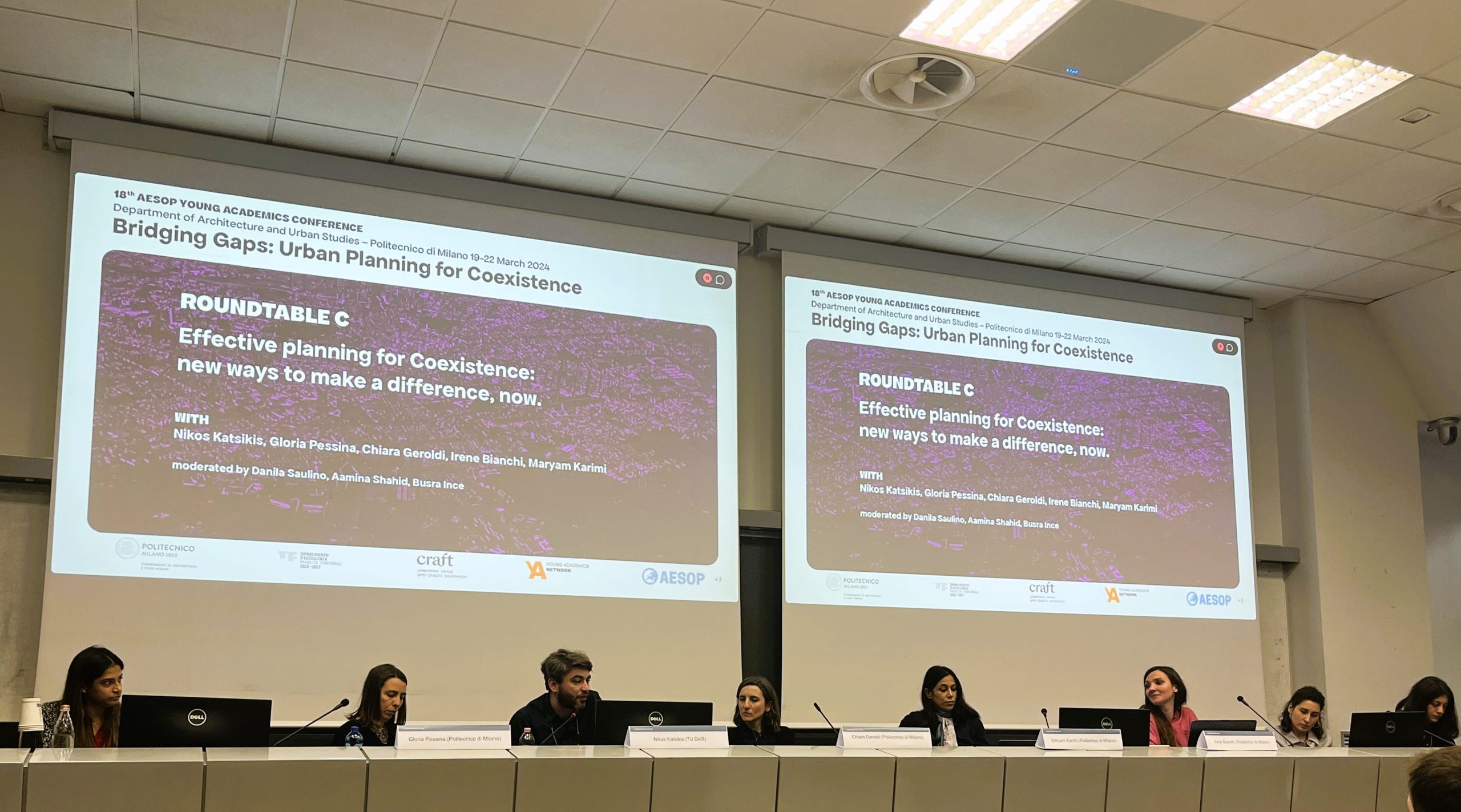
In addition, on Thursday, 22nd March, Irene Bianchi and Maryam Karimi also participated as discussants in the roundtable discussion titled “Reconnecting with Landscapes in Trouble: Towards Co-existence?” Chaired by Gloria Pessina from DAStU Polimi and Nikos Katsikis from Delft University of Technology. The roundtable fostered an enriching dialogue on contested landscapes, margins, actions of resistance, and prospects for coexistence. Participants delved into the pivotal role of planning in engaging with diverse disciplines such as ecology, environmental politics, migration studies, and service design, emphasizing the importance of interdisciplinary collaboration in addressing contemporary urban challenges.
